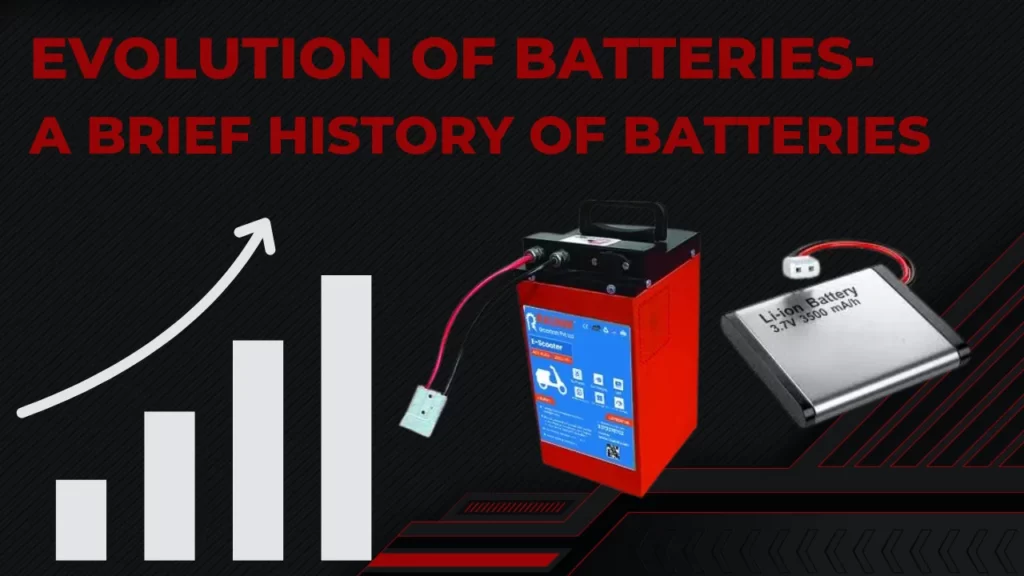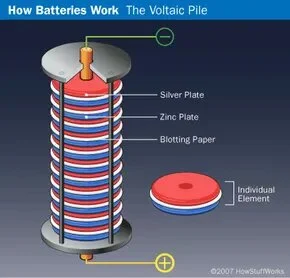
Evolution of Batteries: Man always tries to invent new gadgets so they can use them in their life, all the devices we are using today are created by someone, but now we can easily access them in just a few minutes. But you don’t know how it takes them to make these gadgets; if we discuss the airplane, thousands try to make this fantastic air traveling machine, but only a few succeed in making a perfect plane. So, knowing evolution of batteries is important for who use them.
Who Invented Battery for First Time?
When we are using an electric gadget powered by a battery, we always think that how the brilliant man who invented the battery, and now we are taking benefits from his invention. The first battery was invented by an Italian physicist, Alessandro Volta; no doubt that many other scientists also tried to make the battery, but they could not develop a good one; that’s why the credit for inventing the storm is going to Professor Alessandro Volta. you can also check how a lithium-ion battery works Or How to Make Lithium Ion Battery
History of Batteries in Detail
Evolution of Batteries
The batteries we are using these days are not the same as when they were invented; now, the batteries are available in different shapes and sizes, but the first battery is extra from the battery we are using today.
Today the batteries can be made into different shapes according to the purpose of the use, and digital technology also brought up many changes in the development of batteries, and that’s why we can use the batteries for electric power vehicles and even buses.
Name of First Battery
The name of the first battery is Voltaic Pile, which consists of two plates one is made from Zinc, and the second is made from Silver and is separated by cloth or paper that is soaked in brine or sodium hydroxide. The Voltaic Pile gives new ways for the experiments, and then Michal Faraday draws the laws of electrochemistry based on this invention.
Batteries and Faraday law of Induction
Now the Law is famous as the Faraday law of Induction which tells the relation between quantities of the electrode and the electric power. After that, many scientists made the cells based on faraday’s Law.
After some time, a famous British chemist made a new cell that is known as the denial cell, which caused massive development in the manufacturing of the Lithium batteries, this cell can provide you current with more consistency s compared to the Volta device, but we never underestimate the Volta’s work.
No doubt that Volta invented the first battery, but you will be shocked to know that the batteries can be dated on 250 BC; you can never imagine that those people also understood and used the batteries. According to some people, the batteries are used for religious tingle and pain relief, and the battery is known as the Bagdad Battery, which is identified as Mesopotamian.
Who Invented the Term Battery?
The term battery was first used by American scientist Benjamin Franklin who worked with electricity connected with capacitors. After some time, many other scientists also tried to make the battery but mostly failed; in 1859, the first rechargeable battery was invented, and still, these batteries are used in car engines, not only in cars but in many other machines and engines.
The rechargeable batteries play an essential role in the development of batteries, which is why batteries power most electric gadgets. Now batteries are available that can store the electrical energy from the sunlight and then convert it into electrical energy.
The batteries we are using today are based on different chemistries; most of the batteries are made from the cell, and the chemical reactions always occur in the cells. Now the latest batteries are Why lithium-ion batteries used in various power sectors, like mobile phones, laptops, other machines, and even vehicles.
Electric vehicles will become familiar after 20 years, and everyone wants to buy electric cars instead of using vehicles that are powered by petrol or diesel.
First Acid Lead Battery
The first lead acid battery was invented in 1859, with considerable development in manufacturing batteries. But if we discuss the present manufacturing condition of the batteries, we can easily say that these batteries will change the power sector after a few years.

Especially the batteries charged by solar energy can create a massive gap in this sector, as you only need to spend money once. After that, you can quickly generate electricity without cost because you don’t have to pay for sunlight
.The person behind the fantastic and latest form of the battery called the lithium-ion battery is Dr. Yoshino, who works continuously to develop and change lithium-ion batteries; that’s why now most companies prefer to install lithium-ion batteries in their products. He gained over 60 patents in lithium-ion battery technology in his career.


